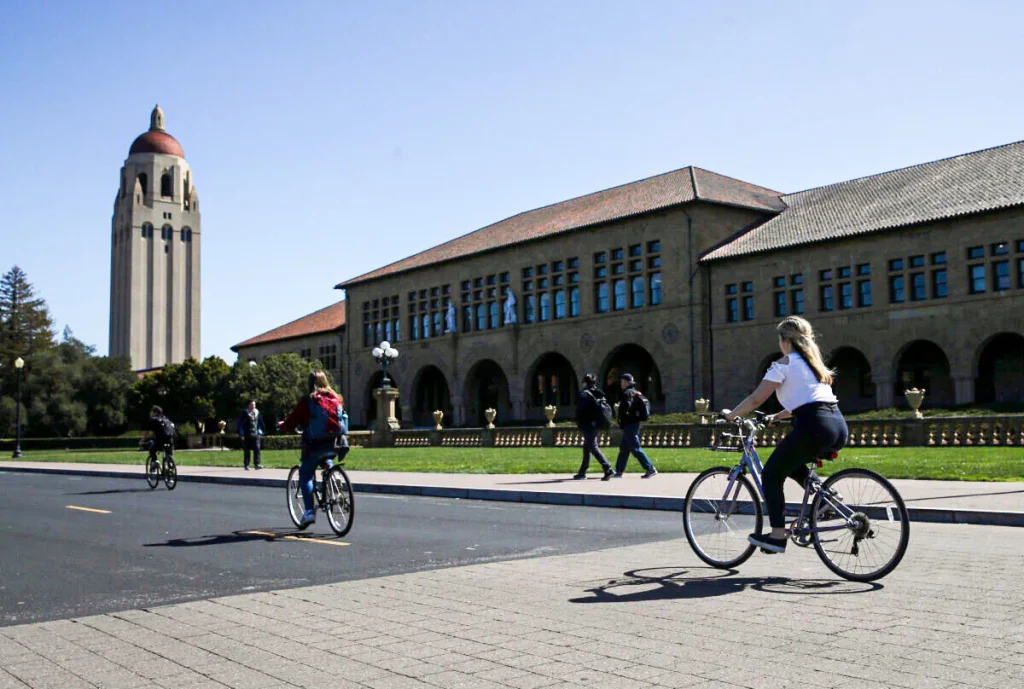Following months of investigation into allegations of research misconduct, Marc Tessier-Lavigne, president of Stanford University, announced his resignation July 19 after a report (pdf) released July 17 uncovered research manipulation in several labs he oversaw while publishing scientific articles and concluded he failed to correct mistakes, even after substantiated peer-reviewed criticisms were made.
Twelve articles were under review by the independent investigative team led by law firm Kirkland & Ellis and composed of a former federal judge, Mark Filip, and five panelists with expertise in science and medicine.
Forensic consultants analyzed 50,000 documents before determining that five articles, where Mr. Tessier-Lavigne is listed as the principal author, contained fraudulent data and required retraction or correction.
In a statement declaring his intention to resign effective August 31—after leading the school since 2016—Mr. Tessier-Lavigne focused on the sentences in the report absolving him of personally manipulating data.
“I am gratified that the [p]anel concluded I did not engage in any fraud or falsification of scientific data,” he said. “Specifically, the [p]anel did not find that I engaged in research misconduct regarding the twelve papers reviewed, nor did it find I had knowledge of or was reckless regarding research misconduct in my lab.”
While the panelists found problematic data manipulation in multiple instances across various labs and institutions, they determined the author was not reckless and that no evidence suggested he falsified data. They did note, however, the papers contained “serious flaws in the presentation of research data; in at least four of the five papers, there was apparent manipulation of research data by others.”
“Although I was unaware of these issues, I want to be clear that I take responsibility for the work of my lab members,” Mr. Tessier-Lavigne said. “As I have emphatically stated, I have never submitted a scientific paper without firmly believing that the data were correct and accurately presented.”
Acknowledging the recommendations of the panel, the author promised to retract at least three of the papers and correct the remainder.
“The [p]anel’s report identified some areas where I should have done better, and I accept the report’s conclusions,” Mr. Tessier-Lavigne said. “I agree that in some instances I should have been more diligent when seeking corrections, and I regret that I was not.”
Failure to address concerns raised by peers critiquing the publications led to the investigation, with documents containing errors and shortcomings repeatedly flagged by fellow scientists between 2001 and 2021.
An incident of this caliber is reportedly unprecedented in the scientific community, especially with the leader of a top-ranked university at the center of the controversy.
“I expect there may be ongoing discussion about the report and its conclusions, at least in the near term, which could lead to debate about my ability to lead the University into the new academic year,” Mr. Tessier-Lavigne said. “Stanford is greater than any one of us. It needs a president whose leadership is not hampered by such discussions.”
Stanford’s Board of Trustees issued a statement thanking the outgoing leader for his years of service as president and work as a prominent neuroscientist.
“In light of the report and its impact on his ability to lead Stanford, the [b]oard decided to accept President Tessier-Lavigne’s resignation and agrees with him that it is in the University’s best interests,” said Jerry Yang, chair of the board.
The board appointed Richard Saller, professor of European studies at Stanford, as interim president starting Sept. 1, with a plan to form a committee in the coming weeks to identify the university’s next president.
Source: The Epoch Times


